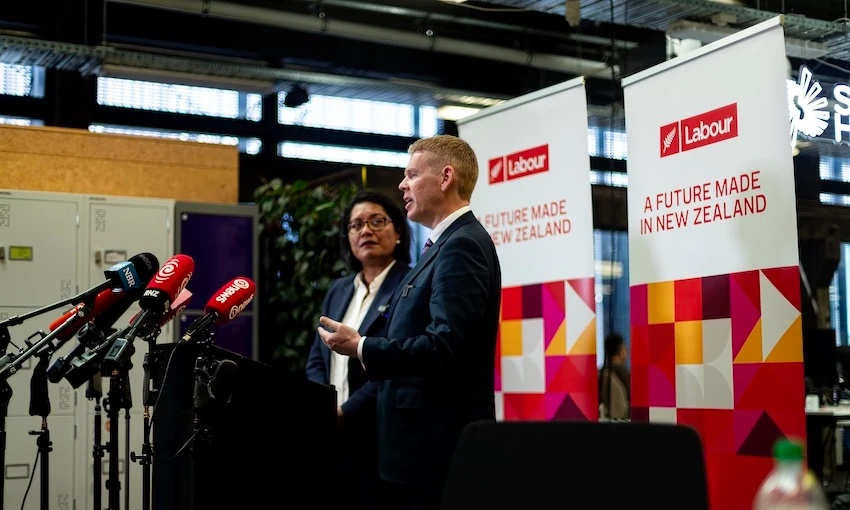Copyright thespinoff

New Zealand’s state investment vehicles have often suffered from having unclear aims. The challenge for Labour lies in clearly articulating what distinctive contribution its Future Fund will make, writes Max Rashbrooke. With the announcement of its Future Fund, the Labour Party has started to answer the charge that it has no policies, and in doing so stepped into an area of politics – namely, industrial strategy – that is both full of promise and studded with pitfalls. The fund, as announced on Monday, would be established by transferring into it unspecified state-owned assets (the power companies would be an obvious choice), not to sell them but to invest the dividends they return to the Crown. The fund would also get a $200 million initial grant. The combined monies would be invested in a mix of public infrastructure projects and early-stage private firms – all of them, crucially, based in New Zealand – in order to boost the country’s long-term prosperity. That Labour feels this is safe territory tells us something about how radically politics has changed this century. The world in which we live, with its low tax rates and privatised utilities, still bears the traces of the neoliberal 1980s – but it has also become a very different beast. Long shunned as a relic of the 1970s, industrial policy – the idea that government can direct economic activity into certain areas rather than others – is once again fashionable. Even under a right-wing Conservative government last decade, Britain had an explicit industrial policy. Joe Biden’s drive to have semiconductors manufactured in America was industrial policy. One of the world’s most influential economists, Mariana Mazzucato, is an arch-exponent of industrial policy. Many states have so-called investment banks, which direct public money into areas of the economy their governments have deemed especially important. Meanwhile, states have established over 90 sovereign wealth funds that control more than $8 trillion in assets. Even Donald Trump wants to set up an American version. The big state is back, baby. These different forms of government action, though, have different rationales. And the challenge for Labour lies in clearly articulating what exactly its Future Fund will achieve. Although it has been billed as a sovereign wealth fund, most such vehicles run on different lines. The standard sovereign wealth fund takes surplus government cash – often generated from state asset sales or oil booms – and invests it wherever the returns are highest. If, the thinking goes, private commerce is generating big profits, the state might as well get a slice. And, judging by the immense returns enjoyed by the Norwegian and Gulf State sovereign wealth funds, that is exactly what happens. This approach does not seek to develop local industry, or pursue goals other than maximising profits. Often, though, left-wingers still love the idea, because at scale – Norway’s sovereign wealth funds own over one-third of the Oslo stock exchange – these vehicles effectively start to socialise the returns on capital. One logical left-wing extension is the social wealth fund, which would invest commercially but return its annual dividends to citizens, each of whom would own one equal, non-saleable share. Labour’s Future Fund, however, will not roam the world chasing maximal returns. It will instead blend commercial and public-good imperatives, seeking to make money but also help local companies grow, promote clean energy, and support infrastructure projects. It is unlikely to make us mega-rich, then, at least in financial terms. If Labour won’t flog state assets to help seed the fund – indeed it wants to make them harder to sell off – the starting stake will be relatively small. Returns on Kiwi infrastructure projects, meanwhile, are typically steady but modest, and many investments in New Zealand startups will presumably fail. All being well, the Future Fund might still grow in size, but not at the dizzying rate of other sovereign wealth funds. Nor does investing in infrastructure, important though that is, constitute a sufficient objective, given that such investment could be funded the typical way, through government borrowing. What, then, is the Future Fund’s distinctive contribution, apart from a (potentially successful) appeal to nationalistic sentiments? Its main selling point seems to be the investments in New Zealand startups. And critics will immediately ask how the government can know which companies to back. Labour is not the only party that sees a role for the state here, however. In this year’s budget, finance minister Nicola Willis put an extra $100 million into the state-backed Elevate venture capital fund “to boost high-growth technology companies with strong export potential”, RNZ reported. The view is not necessarily that the state will pick winners that the market has not. Rather, one theory goes, there are promising Kiwi firms that cannot attract enough capital because the New Zealand funding market is simply too small. One possible model for Labour’s venture is the Ireland Strategic Investment Fund, a state-owned vehicle that pursues a dual investment mandate of boosting economic growth and employment. It claims that its €6.5 billion in funding has, over a decade, unlocked €10.2 billion of private-sector co-investment, all of it essentially focused on Ireland. Mazzucato’s concept of the economic “mission”, in which state investment can “crowd in” private funds, sits in the background of Labour’s policy – but isn’t fleshed out. Balancing commercial and public-good imperatives, moreover, can be tricky. The Future Fund’s governors, acting at arm’s length from ministers, would have to decide how to balance financial returns, jobs created, and environmental goals like fostering renewable energy. While many organisations juggle competing demands, this runs the risk of muddled thinking. Relatedly, the now-canned New Zealand Green Investment Fund, which was supposed to catalyse investment in renewable projects, actually invested on the same terms as private firms, leading people to question what value it added. New Zealand’s state investment vehicles have often suffered from having unclear aims. Backing local startups would also land Labour right in the trickiest parts of the industrial-policy spectrum. There are reasons governments may sensibly invest where the market has not: when there are positive spillover effects that individual firms won’t capture, or multiplying advantages from clusters and hubs, or co-ordination failures in which overseas market A won’t open up unless processing factory B is developed and vice versa. But these justifications have to be clearly articulated and followed through; otherwise the risk of money being wasted is high. Labour is clearly up for the challenge, though. One can sense an attempt to slot building blocks into place: if, totally hypothetically, one of Labour’s next announcements was some form of tax on residential property investment, it would make sense to have prepared the ground for a shift away from property speculation by fostering a pre-existing narrative about where that money might go instead. Sovereign wealth funds are also music to the ears of potential coalition partners like New Zealand First, which mooted its own larger version last year. Much depends, however, on whether the Future Fund, and related policies, can amount to a coherent plan for reshaping the economy.



